In the village of Mremani, the sun is shining high over the reef flat uncovered by a particularly low tide and today, there’s cause for celebration. After a three month periodic octopus fishery closure, it’s reopening day in the village, located on the beautiful island of Mohéli in the Comoros archipelago. Scattered across the reef flat, I can see crowds of octopus fishers enjoying the rewards of their replenished fishery – for the people of Mremani, they are seeing the results of a periodic closure for the first time. Sheltered by mango and palm trees, the beach is buzzing with activity and exclamations of joy and laughter as the fishers from the nearby villages make their way home from what has been a particularly fruitful day of fishing.
The total [octopus] catch weight is 44kg!”
With bewildered eyes, Jean Ahmed, a community-designated park ranger from Mohéli National Park, turns to me to confirm the impressive 44kg reading on the scales. I double check and nod, quite amazed, and the fisher who claimed this catch looks extremely pleased with his reward after a few hours of hard work in the hot Comorian sun.
“The data we collect will help us to understand the success of today’s reopening event, so we can plan for the next closures”Jean Ahmed is now busy entering the numbers in his tablet that he’s been using for real time monitoring for the first time today. Earlier this morning he was nervous about approaching local fishers and explaining the purpose of this data collection, but he seems confident with it now and is proud to be participating in data collection with the fishers: “The data we collect will help us to understand the success of today’s reopening event, so we can plan for the next closures”.
For the past four days, I’ve spent time with the Mohéli National Park staff to build capacity for octopus fisheries management on the island. Mohéli is home to a number of communities, many of whom rely on fishing as a vital source of protein and income. The Mohéli National Park staff collaborate with 19 of these local communities and support them in protecting their natural marine resources.
Upon visiting the island, it was no surprise to me that the people who live here are so keen to preserve it; the marine areas harbor a huge diversity of life and the island itself is much less densely populated than the other Comorian islands of Anjouan and Grande Comore. From the moment you step off the boat, you enter a haven of peace and natural beauty that you’ll never want to leave. It truly is a special place, and I was delighted to have the opportunity to meet the people that live and work there to support the work of Mohéli National Park.
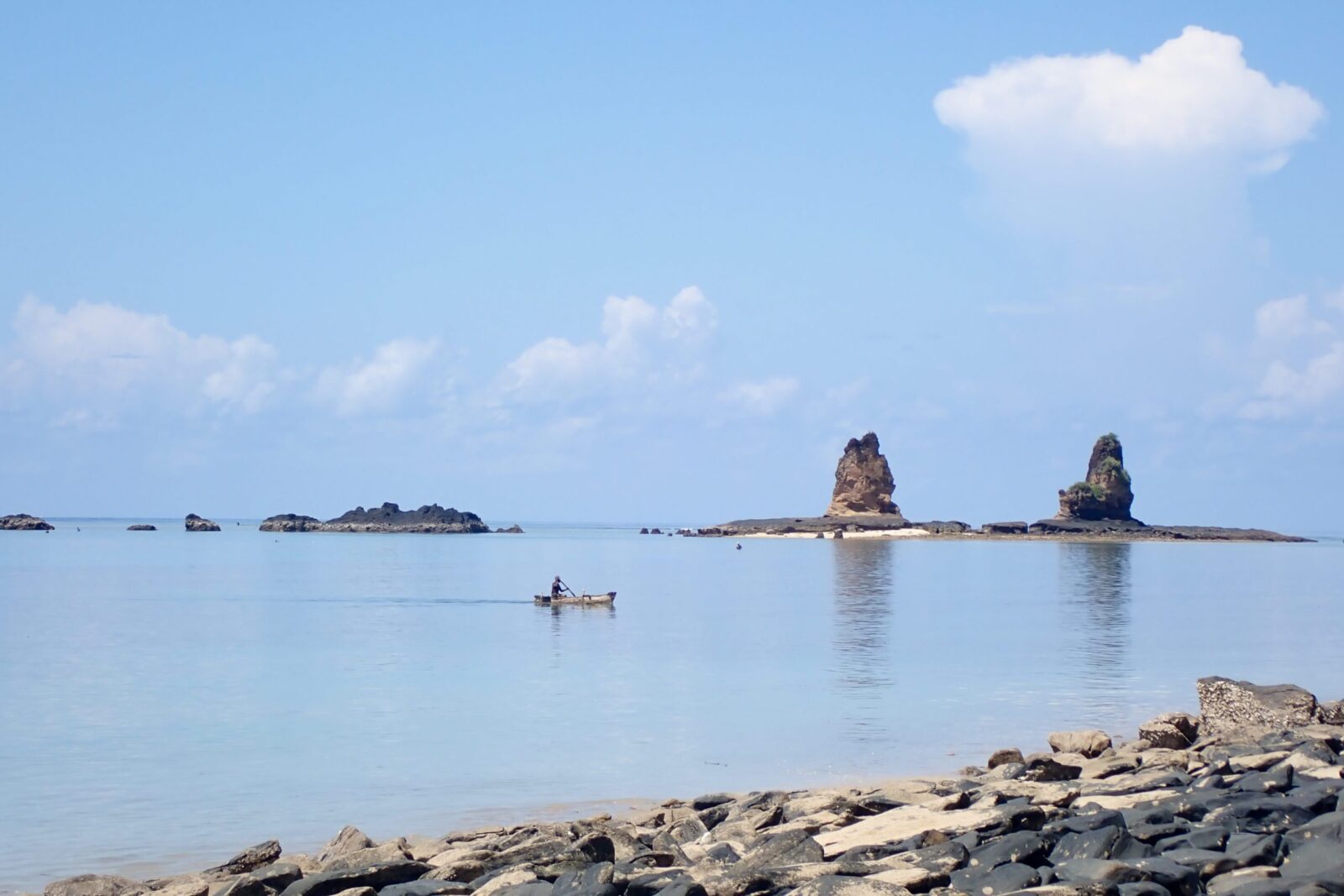
View from the beach nearby the village of Mremani, with a fisher heading towards the reef flat | Photo: Effy Vessaz
The Mohéli National Park has been partnered with Blue Ventures since 2017, and as Blue Ventures’ Partner Support Technician in the Comoros, my role is to foster learning exchanges and support our partners’ staff in their activities, building upon their experience of working with communities for marine conservation measures.
A significant aspect of our collaboration with Mohéli National Park is putting in place a monitoring system to follow octopus catches and to evaluate the effectiveness of management initiatives. Enabling fishers to participate in this process of monitoring and collaborative data sharing helps them to join discussions on catch trends and leads to increased buy-in for fisheries management.
So here I was in early February, ready to train around fifteen Mohéli National Park staff on how to approach fishers and collect data on their catch. The goal of this two-day training was to have them ready for reopening day – further training and follow-up in the field is planned in the coming months to ensure accurate practices.
During the exercise, it became clear that catch monitoring is not just about data… it’s a way to engage peopleOne part of my workshop involved testing the theory that by clearly explaining the purpose and benefits of monitoring activities, you will gain the trust of fishers, who in turn will show a willingness to learn more. To do this, I guided the participants in a role play exercise in which the staff had to play either an easy going or a less cooperative fisher, putting their communication and conflict-solving abilities into practice. The role playing was a lot of fun; it caused a lot of laughter in the classroom thanks to the students’ excellent acting skills! During the exercise, it became clear that catch monitoring is not just about data… it’s a way to engage people, foster collaboration and most importantly, empower communities to come together.
The training is based on our learnings from our collaboration with Dahari, a Blue Ventures partner since 2015 on the neighbouring island of Anjouan. Participatory catch monitoring has been running since 2016 on Anjouan, and we’ve recently conducted training on data analysis with the local women’s associations to go further in building capacity for management, emphasising the link between data and how it is valuable for successful fisheries management.
Between staff from Mohéli National Park and Dahari, and fishing communities from Mohéli and Anjouan, there have been three learning exchanges so far – in December 2017, February 2018 and December 2019. These learning experiences were a success, with enthusiastic participants taking home what they had learned from their peers. In Mohéli, it initiated our support towards building a similar catch monitoring system with Mohéli National Park staff. In the future, we aim to organise more exchange visits so that fishing communities can share their experiences, gradually building a network of catch monitoring wizards across the Comoros!
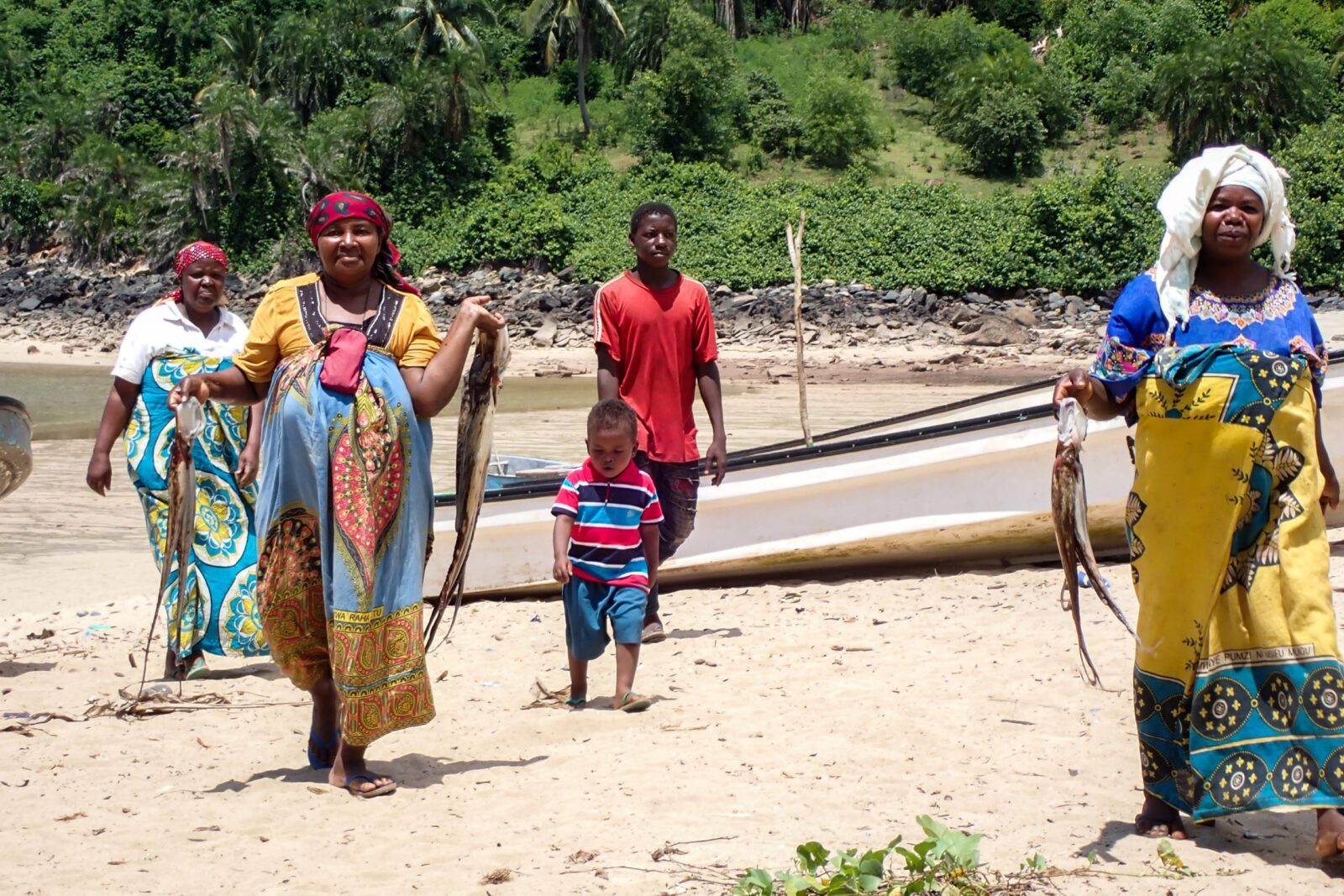
Fisherwomen from Mremani, members of the local women association, are bringing octopus catches to be weighed for monitoring | Photo: Effy Vessaz
Back on the beach, my gaze wanders off towards the incoming tide, with the last fishers making their way back from the reef flat. I feel a tap on my shoulder, and Jean Ahmed says to me:
I hope we will get more training like this one, to learn more about collecting and analysing data, to be able to engage the fishers we work with in the villages more effectively in conservation.”
Done deal! His ambition sets the tone for my next visits to Mohéli in the coming months, when I’ll be building broader capacity for data literacy while engaging partner teams and fishing communities.
Today’s training session on the beautiful island of Mohéli marks the start of a promising adventure with our partners at Mohéli National Park and the communities they’re supporting, and I can’t wait to see how the new things they’ve learnt will feed into sustainable fisheries management on the island. Seeing the octopus fishers’ enthusiasm and excitement today, reminded me once again that data are not just numbers, but a way to empower people to secure the future of their own livelihoods.
We would like to thank the Mohéli National Park team for working with us on this periodic fishery closure and taking part in the training workshops. We would also like to thank our partners Dahari, for their work throughout the Comoros.

Blue Ventures would like to thank the Tusk Trust Limited for their support of our work in the Comoros.


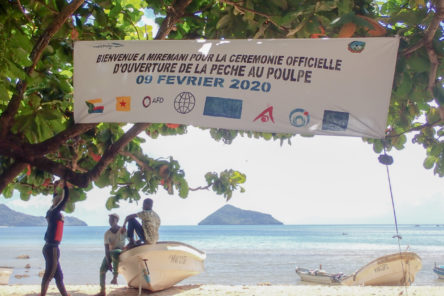
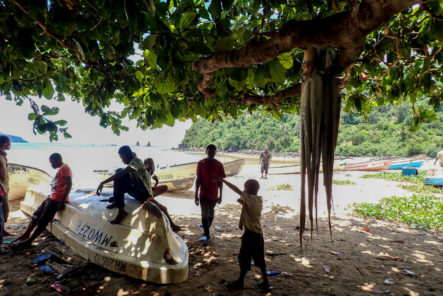
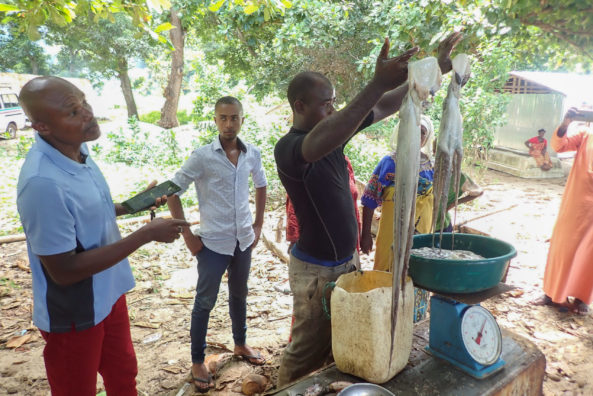
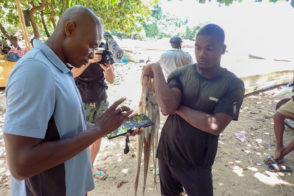
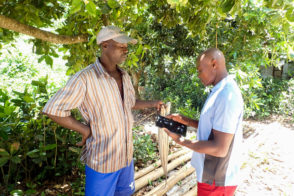
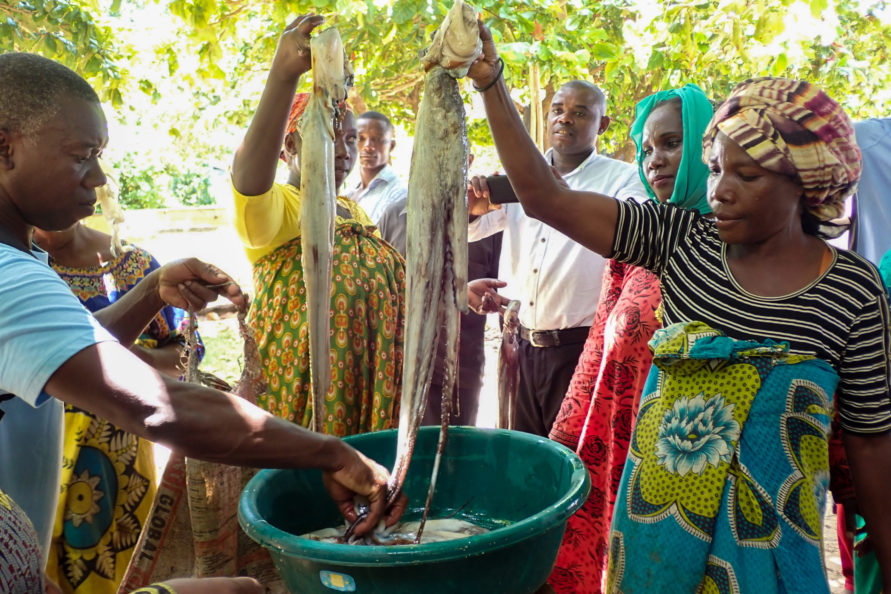
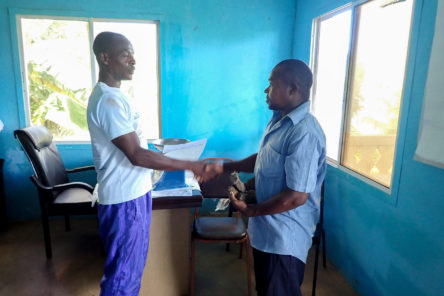
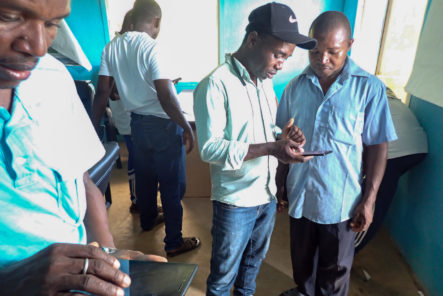
Surtout en période de mois de ramadan,la population mohelienne a besoin de consommer une bonne alimentation riche et moins graisseux.
merci pour les travaux du parc national et tout ceux qui contribue a la protection et au bon usage de ces ressources genetiques!